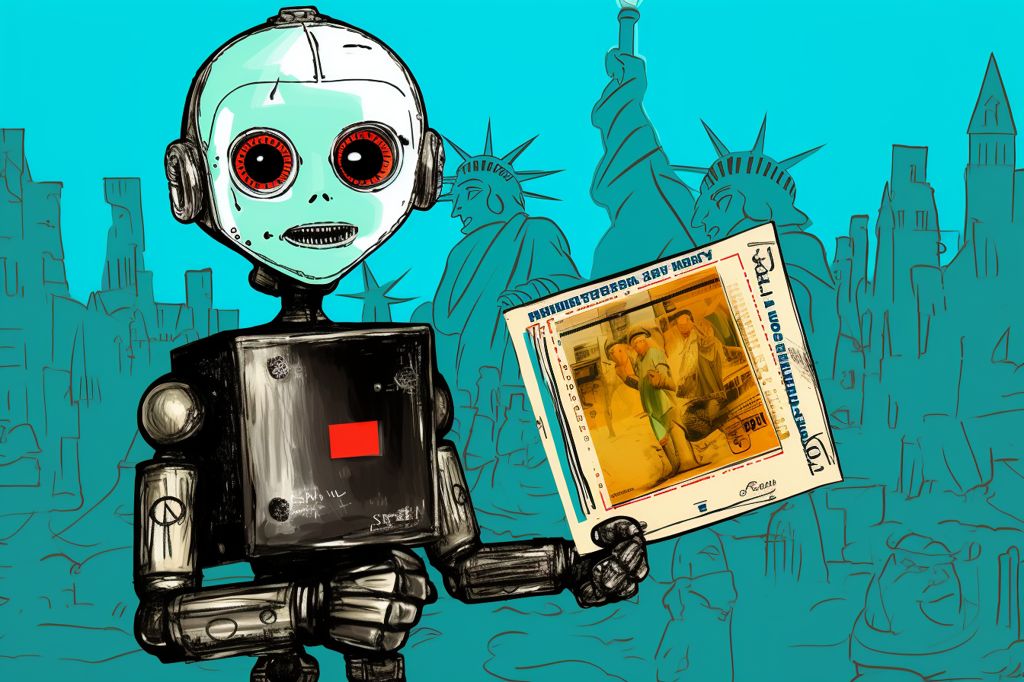The Promise of Ethical AI Content
In a world where the internet is flooded with content of varying quality, BuzzFeed’s CEO Jonah Peretti promised to hold AI-generated content to a high standard. Peretti expressed his concern about the use of AI technology for cost savings, resulting in lower quality, SEO-driven articles that couldn’t measure up to human-written journalism. Despite the “depressing and dystopian” path of content farming, Peretti remained hopeful that high-quality AI-generated content would prevail.
A Shift in BuzzFeed’s Approach?
However, recent evidence suggests that BuzzFeed may have quietly strayed from its commitment to quality AI-generated content. The company appears to have published around 40 AI-generated travel guides, with each piece exhibiting striking similarities to one another. These articles seem to follow a formulaic structure, with repetitive phrases and common tropes that raise questions about the true quality of BuzzFeed’s AI-generated content. Is BuzzFeed succumbing to the content mill model that Peretti initially promised to avoid?
Recurring Phrases and Tropes
A quick examination of the AI-generated travel guides reveals that they frequently employ the same phrases and tropes, which diminishes their quality and authenticity. For example, many of the articles include a line such as, “Now, I know what you’re thinking…” followed by a predictable joke or statement. This repetitive technique is indicative of AI-generated content that lacks creativity and originality.
Another prevalent trope in these guides is the term “hidden gem.” The overuse of this phrase to describe various travel destinations demonstrates a lack of ingenuity within the content. In fact, the term has been applied to a wide range of places, from Amelia Island in Florida to Stanley, Idaho, and even Prague. The excessive use of “hidden gem” is a clear indication of boilerplate writing rather than a thoughtful exploration of each destination.
Challenging Claims and Expert Opinions
The emergence of these AI-generated travel guides on BuzzFeed raises concerns about the company’s adherence to its initial promise of delivering high-quality AI-assisted content. In an age where internet users are seeking reliable, compelling, and accurate information, the apparent shift towards a content mill model is disappointing.
Experts in the field of AI and journalism have expressed concerns about the rapid growth of AI-generated content and its potential impact on the quality and integrity of online information. With technology evolving at a rapid pace, the onus is on publishers and content creators to ensure that AI-generated content is authentic, engaging, and ethically produced.
Fact-Checking and Quality Control
As AI-generated content continues to proliferate online, it’s essential for publishers and online platforms to implement stringent fact-checking and quality control measures. Reputable sources and expert commentary should be utilized to verify the authenticity of claims made in AI-generated articles.
This BuzzFeed case serves as a reminder that the use of AI technology in content creation can lead to a decline in quality if left unchecked. It is the responsibility of publishers and content creators to maintain a commitment to the ethical and accurate use of AI-generated content, ensuring that it adds value to the online world rather than contributing to the growing mountain of low-quality material.
Concluding Thoughts
The recent AI-generated travel guides on BuzzFeed serve as a cautionary tale for the future of content creation. While AI technology can certainly offer various benefits, it’s crucial for publishers and content creators to maintain a commitment to quality, ethical practices, and reliable information. By ensuring that AI-generated content is held to the same standards as human-written material, we can maintain a credible and engaging online space for readers worldwide.

